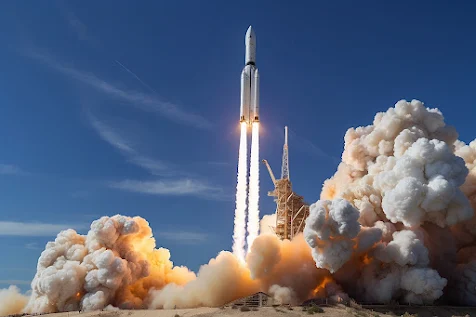Navigating the Landscape of Failed Technology Predictions: A Chronicle of Missteps
In the ever-evolving tapestry of technological advancement, there have been moments when visionaries, pundits, and experts peered into the future only to be met with unforeseen twists and turns. Here, we delve into the Top 30 Failed Technology Predictions, a testament to the unpredictable nature of progress.
1. "The Telephone has too many shortcomings to be seriously considered as a means of communication." - Western Union, 1876
In a world now dominated by smartphones, it's ironic that one of the giants of telecommunication failed to recognize the potential of the telephone.
2. "I think there is a world market for maybe five computers." - Thomas Watson, IBM Chairman, 1943
In the mid-20th century, the enormity of the computing landscape eluded even the most influential minds in the industry.
3. "The Americans have need of the telephone, but we do not. We have plenty of messenger boys." - Sir William Preece, Chief Engineer, British Post Office, 1878
A failure to grasp the transformative power of the telephone is evident in this dismissive remark from across the Atlantic.
4. "Television won't be able to hold on to any market it captures after the first six months. People will soon get tired of staring at a plywood box every night." - Darryl Zanuck, 20th Century Fox, 1946
The enduring popularity of television proves this prediction to be a spectacular misjudgment of human entertainment preferences.
5. "There is no reason anyone would want a computer in their home." - Ken Olson, President, Chairman, and Founder of Digital Equipment Corporation (DEC), 1977
As we navigate the digital age, the ubiquity of computers in homes stands as a stark rebuttal to this short-sighted forecast.
6. "Two years from now, spam will be solved." - Bill Gates, 2004
Despite advancements in filtering technology, the battle against spam rages on, debunking this optimistic prediction.
7. "Next Christmas, the iPod will be dead, finished, gone, kaput." - Sir Alan Sugar, Amstrad, 2005
The iPod, far from meeting its demise, evolved into a cultural phenomenon, challenging the notion that it was a mere fad.
8. "I predict the Internet will soon go spectacularly supernova and in 1996 catastrophically collapse." - Robert Metcalfe, founder of 3Com, 1995
The Internet not only survived but thrived, becoming an integral part of everyday life, disproving this apocalyptic prophecy.
9. "By 2005, it will become clear that the Internet's impact on the economy has been no greater than the fax machine's." - Paul Krugman, Nobel Prize-winning economist, 1998
The profound impact of the Internet on the global economy renders this prediction a testament to the underestimation of digital transformation.
10. "The idea of a personal communicator in every pocket is kind of hard to imagine." - Motorola Executive, 1989
Little did they know, the smartphone revolution would make personal communication devices an indispensable part of daily life.
11. "By 1985, machines will be capable of doing any work Man can do." - Herbert A. Simon, Nobel Prize-winning economist, 1965
As automation advances, humans remain irreplaceable in numerous complex tasks, challenging the notion of complete machine dominance.
12. "No one will need more than 637 KB of memory for a personal computer." - Bill Gates, 1981
In the age of data-intensive applications, the need for memory far exceeds this early prediction, highlighting the difficulty in foreseeing technological requirements.
13. "The wireless music box has no imaginable commercial value. Who would pay for a message sent to nobody in particular?" - Associates of David Sarnoff responding to the radio, 1920
The radio's cultural impact and enduring popularity underscore the shortsightedness of this dismissal.
14. "The mouse is a ridiculous device." - Bill Gates, 1985
As an integral part of personal computing, the mouse has proven its worth, debunking this early critique from a tech luminary.
15. "There's just not that many videos I want to watch." - Steve Chen, CTO and Co-founder of YouTube, 2005
The explosive growth of online video platforms contradicts this initial skepticism about the demand for video content.
16. "Apple is already dead." - Nathan Myhrvold, former Microsoft CTO, 1997
Contrary to this premature eulogy, Apple not only survived but became a tech juggernaut, reshaping industries with iconic products.
17. "The concept is interesting and well-formed, but in order to earn better than a 'C,' the idea must be feasible." - A Yale University management professor in response to Fred Smith's paper proposing reliable overnight delivery service (Smith went on to found FedEx), 1966
FedEx's success demonstrates how groundbreaking ideas, initially dismissed, can redefine industries and create global enterprises.
18. "By 2000, all the best people in the industry will be working for Microsoft." - James Clark, founder of Silicon Graphics, and Netscape, 1995
The decentralized nature of the tech industry and the rise of innovative startups refute this prediction, illustrating the diversity of talent across the sector.
19. "The concept of a 'cyber cafe' will never take off." - Clifford Stoll, Newsweek, 1995
The proliferation of internet cafes globally contradicts this skepticism about the demand for communal internet access.
20. "I feel pretty confident that the Internet's impact on society will be fairly limited." - David Bohnett, founder of GeoCities, 1998
The profound societal changes catalyzed by the internet expose the limitations of predicting its impact accurately.
In conclusion, the Top 30 Failed Technology Predictions serve as a humbling reminder that even the brightest minds can falter when peering into the future. Technological progress is a dynamic and often unpredictable journey, marked by unexpected turns that redefine our understanding of what's possible.
If you want to read more information about how to navigate the ever-changing landscape of technology, just visit https://worldtechnologyv1.blogspot.com

